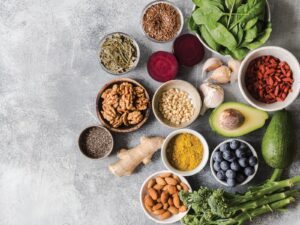We’ve all been there before – the gaining and losing of weight, chasing any fad diet that promises quick results with minimal effort. We lose the weight but it comes back with a vengeance. Have you ever wondered why this happens? These fad “quick fixes” may produce some weight loss but what our body goes through – changes in our body chemistry and the reconditioning of our fat burning capacity – makes it almost impossible to keep weight off. There is new science behind yo-yo dieting and why it keeps us fat.
Yo-Yo Dieting Defined
Yo-yo dieting (also known as weight cycling) is the loss and subsequent regaining of weight because of dieting. These weight fluctuations can occur numerous times over a person’s lifespan. Fluctuations in weight from yo-yo dieting can range from five to 50 pounds each cycle. Notably with each cycle our pre-diet weight may begin to increase over time and it becomes more difficult to shed those unwanted pounds.
Dangers of Yo-Yo Dieting
Yo-yo dieting creates detriments to our bodies beyond regaining weight. Some of the dangers of yo-yo dieting:
- Creates stress for the body, and cortisol (our stress hormone) is released and remains elevated. Belly fat as well as cancers are some problems associated with high cortisol levels.
- You are at risk for coronary heart disease since weight fluctuations of 10 or more pounds can increase your risk for high cholesterol and high blood pressure.
- Weight fluctuations associated with yo-yo dieting are associated with gall bladder disease.
- Yo-yo dieting can create a shift in body mass where muscle mass is lost over a period of time. With a higher fat ratio, it becomes even more difficult to burn fat at rest and puts you at risk for more serious problems like cancer.
- Heart arrhythmias can occur due to the shift in your nutrients, such as minerals and enzymes needed for healthy functioning.
- Yo-yo dieting can cause psychological problems as well, particularly concerning self-esteem and confidence.
The Link Between Yo-Yo Dieting and Gut Bacteria
Recent research shows how the gut microbiome plays a key role in how we use and store calories. This could explain why we can pack on the pounds after chronic yo-yo dieting. The gut microbiome is a community of bacteria and other microorganisms that inhabit our gut. How we eat and live affects our microbiome in various ways. The myriad of lifestyle factors that contribute to being overweight or obese can alter our gut bacteria in ways that could be contributing to weight gain.
Scientists have now found that altered gut bacteria may be the reason for the dreaded yo-yo dieting effect. Tested on mice, researchers found that after weight loss, gut bacteria may encourage the body to store calories as fat and actively thwart the body’s attempt to keep weight off. In fact, the mice that lost and then regained weight were unhealthier than overweight mice that didn’t lose any weight at all. They had higher body fat and cholesterol and indicators of metabolic disease, such as insulin resistance. This is all attributable to gut bacteria reacting adversely to weight loss.
Researchers found that the gut microbiome of obese mice was deficient in responding to flavonoids. Flavonoids are polyphenols which are chemicals naturally produced by plants. There are over 400 flavonoids in the human diet, and the average Western diet supplies about 1,000 mg per day. Asian diets supply four to five times that amount, mostly from teas and spices. Flavonoids are best known for their anti-inflammatory and anti-cancer effects and they can influence almost every system in your body. High intake of flavonoids in the diet has been associated with decreased risk of many chronic diseases and allergies.
Researchers discovered through test mice that with each episode of weight gain, the disturbance in gut microbes was greater, and each subsequent round of weight loss was less effective at restoring a normal balance to the gut microbiome. This finding is a real breakthrough in understanding how disturbed gut bacteria cause weight gain. The altered gut bacteria became more efficient at destroying flavonoids. The more cycles of weight gain and loss the mice experienced, the greater the capacity of their gut microbes to destroy flavonoids, and the flavonoid levels in the blood of these mice dropped dramatically over time.
There were two flavonoids that were especially depleted after rounds of yo-yo dieting and they are apigenin and naringenin. Each of these has profound effects in humans. Apigenin has anti-inflammatory and anti-allergic effects and alters the metabolism of fat cells. Naringenin is a powerful antioxidant with anti-inflammatory effects and plays an important role in detoxification. Researchers noted that both flavonoids increase metabolic rate and suppress appetite.
Poor Gut Health Leads to Hormonal Imbalance and More Weight Gain
A healthy gut promotes balanced hormones and that is the key to optimum functioning. Certain types of bacteria have been shown to play a part in how hungry or full you are. These bacteria can modulate the levels of hunger stimulating hormones in the body called ghrelin. Bad bacteria in your gut tend to produce more acetate, which in turn increases the production of insulin.
Insulin, a hormone produced by your pancreas, promotes the storage of calories. It also produces ghrelin. Furthermore, researchers observed in lab mice that when levels of “bad” bacteria in their gut were out of balance, there was more inflammation which in turn led them to eat more and more. They also found that the metabolism of mice was damaged, reducing their ability to burn calories.
How to Stop the Yo-Yo Dieting Weight Gain Cycle
1) Avoid fad dieting. Slow, healthy lifestyle changes can help you lose weight and keep it off long-term.
2) Restore gut health by eating more whole, natural foods rich in probiotics and fiber, such as fresh fruits and vegetables.
3) Avoid processed foods and foods high in sugar and artificial ingredients all which promote “bad” bacteria in our gut.
4) Restore healthy flavonoids with parsley, artichokes and celery leaves (apigenin) and grapefruit (naringenin). Be cautious with grapefruit juice if you are on certain types of medications (ask your doctor or pharmacist). These flavonoids can be replenished through supplementation as well.
5) Supplement with probiotics, the best way to saturate your gut with a large amount of beneficial bacteria that can help with digestion and promote gut healing to help your weight loss efforts. (Do your research; not all probiotics are created equal.)
6) Exercise on a regular basis; it has a positive effect on your gut bacteria by enhancing the number of beneficial species, improving diversity and boosting the development of new bacteria.
Conclusion
Yo-yo dieting can damage our gut health and deter our long-term weight loss goals. The link between our gut health and keeping stubborn weight on is profound. Restoring our gut with healthy bacteria not only helps us with our weight loss efforts, but can also help us rebuild our health. A balanced gut makes for a balanced body.
The author wishes to thank pharmacy student Tamia Jones for research critical to the writing of this column.
























